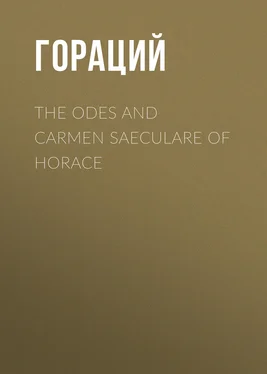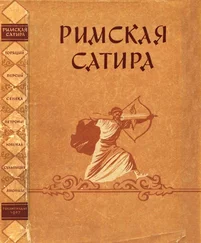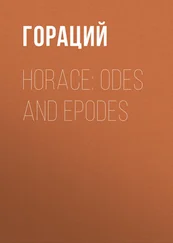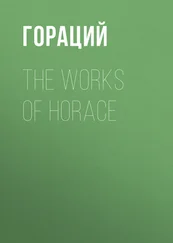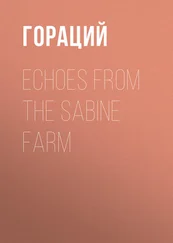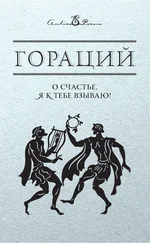Квинт Гораций Флакк - The Odes and Carmen Saeculare of Horace
Здесь есть возможность читать онлайн «Квинт Гораций Флакк - The Odes and Carmen Saeculare of Horace» — ознакомительный отрывок электронной книги совершенно бесплатно, а после прочтения отрывка купить полную версию. В некоторых случаях можно слушать аудио, скачать через торрент в формате fb2 и присутствует краткое содержание. Жанр: foreign_poetry, Поэзия, foreign_antique, foreign_prose, на английском языке. Описание произведения, (предисловие) а так же отзывы посетителей доступны на портале библиотеки ЛибКат.
- Название:The Odes and Carmen Saeculare of Horace
- Автор:
- Жанр:
- Год:неизвестен
- ISBN:нет данных
- Рейтинг книги:4 / 5. Голосов: 1
-
Избранное:Добавить в избранное
- Отзывы:
-
Ваша оценка:
- 80
- 1
- 2
- 3
- 4
- 5
The Odes and Carmen Saeculare of Horace: краткое содержание, описание и аннотация
Предлагаем к чтению аннотацию, описание, краткое содержание или предисловие (зависит от того, что написал сам автор книги «The Odes and Carmen Saeculare of Horace»). Если вы не нашли необходимую информацию о книге — напишите в комментариях, мы постараемся отыскать её.
The Odes and Carmen Saeculare of Horace — читать онлайн ознакомительный отрывок
Ниже представлен текст книги, разбитый по страницам. Система сохранения места последней прочитанной страницы, позволяет с удобством читать онлайн бесплатно книгу «The Odes and Carmen Saeculare of Horace», без необходимости каждый раз заново искать на чём Вы остановились. Поставьте закладку, и сможете в любой момент перейти на страницу, на которой закончили чтение.
Интервал:
Закладка:
The remaining metres may be dismissed in a very few words. As a general rule, I have avoided couplets of any sort, and chosen some kind of stanza. As a German critic has pointed out, all the Odes of Horace, with one doubtful exception, may be reduced to quatrains; and though this peculiarity does not, so far as we can see, affect the character of any of the Horatian metres (except, of course, those that are written in stanzas), or influence the structure of the Latin, it must be considered as a happy circumstance for those who wish to render Horace into English. In respect of restraint, indeed, the English couplet may sometimes be less inconvenient than the quatrain, as it is, on the whole, easier to run couplet into couplet than to run quatrain into quatrain; but the couplet seems hardly suitable for an English lyrical poem of any length, the very notion of lyrical poetry apparently involving a complexity which can only be represented by rhymes recurring at intervals. In the case of one of the three poems written by Horace in the measure called the greater Asclepiad, ("Tu ne quoesieris,") I have adopted the couplet; in another ("Nullam, Vare,") the quatrain, the determining reason in the two cases being the length of the two Odes, the former of which consists but of eight lines, the latter of sixteen. The metre which I selected for each is the thirteen- syllable trochaic of "Locksley Hall;" and it is curious to observe the different effect of the metre according as it is written in two lines or in four. In the "Locksley Hall" couplet its movement is undoubtedly trochaic; but when it is expanded into a quatrain, as in Mrs. Browning's poem of "Lady Geraldine's Courtship," the movement changes, and instead of a more or less equal stress on the alternate syllables, the full ictus is only felt in one syllable out of every four; in ancient metrical language the metre becomes Ionic a minore. This very Ionic a minore is itself, I need not say, the metre of a single Ode in the Third Book, the "Miserarum est," and I have devised a stanza for it, taking much more pains with the apportionment of the ictus than in the case of the trochaic quatrain, which is better able to modulate itself. I have also ventured to invent a metre for that technically known as the Fourth Archilochian, the "Solvitur acris hiems," by combining the fourteen-syllable with the ten-syllable iambic in an alternately rhyming stanza. [Footnote: I may be permitted to mention that Lord Derby, in a volume of Translations printed privately before the appearance of this work, has employed the same measure in rendering the same Ode, the only difference being that his rhymes are not alternate, but successive.] The First Archilochian, "Diffugere nives," I have represented by a combination of the ten-syllable with the four- syllable iambic. For the so-called greater Sapphic, the "Lydia, die per omnes" I have made another iambic combination, the six-syllable with the fourteen-syllable, arranged as a couplet. The choriambic I thought might be exchanged for a heroic stanza, in which the first line should rhyme with the fourth, the second with the third, a kind of "In Memoriam" elongated. Lastly, I have chosen the heroic quatrain proper, the metre of Gray's "Elegy," for the two Odes in the First Book written in what is called the Metrum Alcmanium, "Laudabunt alii," and "Te maris et terrae," rather from a vague notion of the dignity of the measure than from any distinct sense of special appropriateness.
From this enumeration, which I fear has been somewhat tedious, it will be seen that I have been guided throughout not by any systematic principles, but by a multitude of minor considerations, some operating more strongly in one case, and some in another. I trust, however, that in all this diversity I shall be found to have kept in view the object on which I have been insisting, a metrical correspondence with the original. Even where I have been most inconsistent, I have still adhered to the rule of comprising the English within the same number of lines as the Latin. I believe tills to be almost essential to the preservation of the character of the Horatian lyric, which always retains a certain severity, and never loses itself in modern exuberance; and though I am well aware that the result in my case has frequently, perhaps generally, been a most un-Horatian stiffness, I am convinced from my own experience that a really accomplished artist would find the task of composing under these conditions far more hopeful than he had previously imagined it to be. Yet it is a restraint to which scarcely any of the previous translators of the Odes have been willing to submit. Perhaps Professor Newman is the only one who has carried it through the whole of the Four Books; most of my predecessors have ignored it altogether. It is this which, in my judgment, is the chief drawback to the success of the most distinguished of them, Mr. Theodore Martin. He has brought to his work a grace and delicacy of expression and a happy flow of musical verse which are beyond my praise, and which render many of his Odes most pleasing to read as poems. I wish he had combined with these qualities that terseness and condensation which remind us that a Roman, even when writing "songs of love and wine," was a Roman still.
Some may consider it extraordinary that in discussing the different ways of representing Horatian metres I have said nothing of transplanting those metres themselves into English. I think, however, that an apology for my silence may he found in the present state of the controversy about the English hexameter. Whatever may be the ultimate fate of that struggling alien—and I confess myself to be one of those who doubt whether he can ever be naturalized—most judges will, I believe, agree that for the present at any rate his case is sufficient to occupy the literary tribunals, and that to raise any discussion on the rights of others of his class would be premature. Practice, after all, is more powerful in such matters than theory; and hardly at any time in the three hundred years during which we have had a formed literature has the introduction of classical lyric measures into English been a practical question. Stanihurst has had many successors in the hexameter; probably he has not had more than one or two in the Asclepiad. The Sapphic, indeed, has been tried repeatedly; but it is an exception which is no exception, the metre thus intruded into our language not being really the Latin Sapphic, but a metre of a different kind, founded on a mistake in the manner of reading the Latin, into which Englishmen naturally fall, and in which, for convenience' sake, they as naturally persist. The late Mr. Clough, whose efforts in literature were essentially tentative, in form as well as in spirit, and whose loss for that very reason is perhaps of more serious import to English poetry than if, with equal genius, he had possessed a more conservative habit of mind, once attempted reproductions of nearly all the different varieties of Horatian metres. They may he found in a paper which he contributed to the fourth volume of the "Classical Museum;" and a perusal of them will, I think, be likely to convince the reader that the task is one in which even great rhythmical power and mastery of language would be far from certain of succeeding. Even the Alcaic fragment which he has inserted in his "Amours de Voyage"—
"Eager for battle here
Stood Vulcan, here matronal Juno,
And with the bow to his shoulder faithful
He who with pure dew laveth of Castaly
His flowing locks, who holdeth of Lycia
The oak forest and the wood that bore him,
Delos' and Patara's own Apollo,"—
admirably finished as it is, and highly pleasing as a fragment, scarcely persuades us that twenty stanzas of the same workmanship would be read with adequate pleasure, still less that the same satisfaction would be felt through six-and-thirty Odes. After all, however, a sober critic will be disposed rather to pass judgment on the past than to predict the future, knowing, as he must, how easily the "solvitur ambulando" of an artist like Mr. Tennyson may disturb a whole chain of ingenious reasoning on the possibilities of things.
Читать дальшеИнтервал:
Закладка:
Похожие книги на «The Odes and Carmen Saeculare of Horace»
Представляем Вашему вниманию похожие книги на «The Odes and Carmen Saeculare of Horace» списком для выбора. Мы отобрали схожую по названию и смыслу литературу в надежде предоставить читателям больше вариантов отыскать новые, интересные, ещё непрочитанные произведения.
Обсуждение, отзывы о книге «The Odes and Carmen Saeculare of Horace» и просто собственные мнения читателей. Оставьте ваши комментарии, напишите, что Вы думаете о произведении, его смысле или главных героях. Укажите что конкретно понравилось, а что нет, и почему Вы так считаете.
